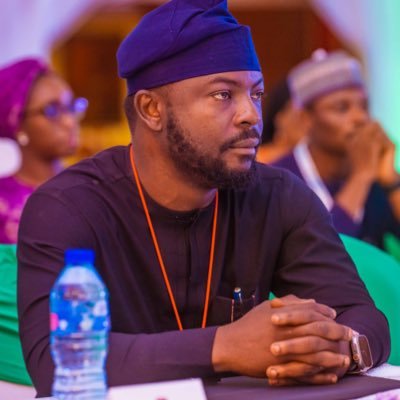By Dada Olusegun
Education in Nigeria has always been a challenging enterprise especially for governments at all levels who are saddled with the responsibility to ensure universal coverage and that citizens have access to good and qualitative education. Post-independence Nigeria witnessed a rise in the number of Nigerians seeking to acquire formal education.
The existing schools became inadequate. This gave rise to the challenge of building more schools to accommodate the increasing population of Nigerians of school age. In most places across Nigeria, the provision of educational facilities did not keep pace with the rate of population increase thanks to inadequate investment in education by various governments.
Poor and inadequate learning environment however, was not the only major problem facing the educational sector in Nigeria over the years. There was equally the issue of access to education due to the rising cost of education amidst rising poverty rate and inequality in the land. As the number of poor households increased, the number of out-of-school children ballooned and reached unacceptable levels.
The introduction of free compulsory basic education tried to paper the cracks. However even with the introduction of free basic education in public schools covering primary 1 to JSS 3 classes, access was still not universal due to inability of many indigent households to afford even the other ancillary expenses such as school uniforms, bags, books etc.
The problem of access to education becomes even more chronic at the tertiary level. According to a World Bank-backed study, only around 68% of youths in Nigeria in 2020 had received secondary education. More worrying is the report that only 17% of Nigerian youths pursued higher studies after secondary education. Also, according to National Universities Commission, as at 2022, only around 2.1 million students are studying in Nigerian universities with more than 90% of this figure enrolled in public universities.
Among those who manage to make it to public tertiary institutions in Nigeria, 18% end up dropping out due to inability to continue funding their education despite the subsidised cost of education in tertiary institutions in Nigeria. This sad reality means that millions of young Nigerians are deprived of the opportunity to receive tertiary education due to finance-related obstacles. When you add the dropout rate in secondary school, you would have a staggering figure of Nigerians whose education were cut short due to unavailability of funds. Worse still, many of the dropouts cannot afford to pay for relevant skills acquisitions either.
THE STUDENT LOAN TO THE RESCUE
In a bid to tackle this existential funding challenges in a more sustainable manner, President Bola Ahmed Tinubu during his presidential campaigns promised to introduce an education loan programme to allow students from indigent homes to access zero interest loans to finance their tertiary education, which they can only begin to repay gradually once they start earning income after graduation. Less than a year into his administration, that promise has become a reality!
On May 24, 2024 the portal for the Nigerian Education Loan Fund (NELFUND) will be open to receive applications from indigent students of tertiary institutions and other young Nigerians seeking funds to finance their vocational education. The significance of this landmark programme has not really dawned on many especially those who never gave the programme a chance.
The education loan programme is simply a game-changer as far as access to education is concerned in Nigeria. It removes from the equation, the excuse of inability to finance education (either tertiary or vocational education), which has been a major impediment faced by students from poor households. The loan guarantees eligible beneficiaries access to the education they seek at no immediate cost to them.
Crucially, one of the most laudable aspects of the education loan is the expansion of the programme to cater for financing of vocational training of young Nigerians who may want to acquire skills with relevant certification instead of attending tertiary education. This singular window made possible by the education loan fund would perhaps lead to an unprecedented increase in the number of skilled Nigerians who would very employable with requisite practical knowledge and who equally possess the ability to become self-employed. This is a potential massive boost to our national productivity and employment.
PRESIDENT TINUBU BUILDING ON AWOLOWO’S VISION FOR EDUCATION
President Bola Tinubu by relentlessly seeking to enthrone the landmark education loan programme has taken up the torch of expanding late Chief Obafemi Awolowo’s vision for education. Awolowo had this burning desire to ensure that every citizen, no matter his place of birth or religion, must be given equal access and opportunities to education at all levels. As far as Awolowo was concerned, apart from food and shelter, the next greatest ‘Man’s need’ was education. It is the extension of this Awolowo’s belief that is driving President Tinubu to institute a legacy that ensures access to tertiary or vocational education is not denied to any Nigerian due to their poor background.
The major aim of the Education Loan Fund is to give poor and vulnerable Nigerian students a fighting chance to better their lives. This is the main reason why beneficiaries would only be restricted to public tertiary institutions, which are where the children of the poor are mostly found. With this education loan programme and the way it is structured to equally provide monthly upkeep payments directly to the beneficiaries, a huge burden is removed from the shoulders of the parents/guardians of the beneficiaries.
The roll out of the Education Loan Fund alongside many other significant interventions of President Tinubu in the education sector in less than one year in office including the unprecedented budgetary provision for Tertiary Education Trust Fund (TETFUND), and moves to put a stop to incessant strikes by tertiary labour unions shows that education is a priority of the Tinubu administration. These interventions are simply the start of an education revolution in Nigeria.

